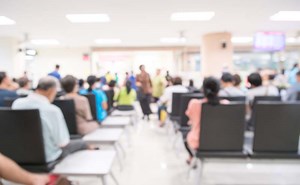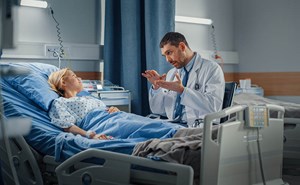As you all know, our country is now experiencing two public health emergencies (PHEs): COVID-19 and Monkeypox. The COVID-19 PHE, which is currently set to expire this October, will likely be extended again into January 2023. That PHE, which was first declared in January 2020, has already been extended in 90-day increments ten times. With respect to Monkeypox, the Secretary of the U.S. Department of Health and Human Services (HHS), Xavier Becerra, declared the PHE a couple weeks ago on August 4th. The declaration will hopefully provide agencies within HHS, including the Centers for Disease Control and Prevention (CDC) and the Food and Drug Administration (FDA), with the tools, resources, and flexibilities they need to better respond to the outbreak. The good news is that we already know a lot about Monkeypox.
According to the CDC, there are over 11,000 confirmed Monkeypox cases across the United States—and that number is growing exponentially. Some of you have told us that you are already starting to see cases of Monkeypox coming in your emergency department (ED)—and all of you want to be as prepared as possible when you do see your first case.
Understanding that the ED is the frontline defense against Monkeypox, ACEP has already taken a number of concrete steps to help educate emergency physicians, other clinicians, and the public about the disease.
First, ACEP has released a comprehensive Monkeypox Field Guide that we are continually updating. This Field Guide includes general information about the disease and how it’s transmitted; clinical characteristics of the disease and how it can be recognized; infection prevention and control protocols; specimens collection, handling, and storage procedures; treatment and management of the disease; isolation procedures; vaccine guidance; monitoring exposed healthcare professionals; and additional information. The information included in the field guide complements much of what the CDC has released.
Second, we are working with VisualDx on the “Monkeypox Emergency Medicine Project.” VisualDx is a diagnostic clinical decision support system that is “designed to enhance diagnostic accuracy, aid therapeutic decisions, and improve patient safety” using images. Through the Monkeypox Emergency Medicine Project, VisualDx is collecting images of Monkeypox cases and will eventually make these images freely accessible to ACEP members and other clinicians to help them recognize and diagnose cases. Together, ACEP and VisualDx are asking you to contribute your confirmed Monkeypox case images to the initiative.
And third, we are posting weekly rundowns in the Emerging Threats Communication Hub, an open discussion forum for all ACEP members. In these communications, we summarize the latest news and updates from the FDA, CDC, and other federal agencies. We are in contact with these agencies on a routine basis and are trying to relay information from them to you all in real-time.
I encourage you all to check out these ACEP resources and contribute images to the Monkeypox Emergency Medicine Project. Also, if you have specific questions about Monkeypox, please feel free to reach out to our clinical team. Please email Dr. Jonathan Fisher, ACEP’s Senior Director for Workforce and Emergency Medicine Practice, at jfisher@acep.org.
Before concluding, I do want to provide an update on Monkeypox vaccination. Some of you have asked whether health care workers such as yourselves should be getting vaccinated. Currently, there are two vaccinations approved by the FDA for the treatment of orthopoxviruses, which include Monkeypox:
- JYNNEO is a live, non-replicating vaccine licensed by the FDA for prevention of smallpox and monkeypox disease in adults 18 years of age and older determined to be at high risk for smallpox or Monkeypox infection. The FDA recently issued an emergency use authorization (EUA) to allow healthcare providers to administer the vaccine by intradermal injection. This will increase the total number of doses available for use by fivefold, but supply is still limited. The Administration for Strategic Preparedness and Response (ASPR) and CDC are working with jurisdictions to right-size allocations and rapidly get vaccines to the people who need them most. HHS is also working with the makers of JYNNEOS, Bavarian Nordic, to secure additional doses and accelerate delivery of vaccines that can help keep people safe and stem the spread of the virus.
- ACAM2000 is a live vaccine for active immunization against smallpox disease licensed by the FDA for persons determined to be at high risk for smallpox infection and part of the strategic national stockpile. ACAM2000 vaccine is in much greater supply, but due to significant side effects is not recommended for everyone.
According to the Advisory Committee on Immunization Practices (ACIP), there are certain high-risk populations that the CDC are recommending getting vaccinated including individuals at risk for occupational exposure. This is known as pre-exposure prophylaxis (PrEP). People who should get PrEP include:
- Clinical laboratory personnel who perform testing to diagnose Monkeypox.
- Research laboratory workers who directly handle cultures or animals contaminated or infected with Monkeypox.
- Certain healthcare and public health response team members designated by public health authorities to be vaccinated for preparedness purposes
People eligible to receive PrEP include healthcare personnel who administer ACAM2000 or anticipate caring for many patients with Monkeypox.
The CDC has specifically stated that: “at this time, most clinicians in the United States and laboratorians not performing the orthopoxvirus generic test to diagnose orthopoxviruses, including monkeypox, are not advised to receive orthopoxvirus PrEP.”
As of now, there have been limited instances of healthcare workers contracting Monkeypox. ACEP is in ongoing discussions with the CDC about the risks and needs for vaccinations of frontline ED staff. Going forward, it will be important for you all to assess the risk and benefits of vaccination and decide whether to get vaccinated at the appropriate time if/when the CDC recommends it for a broader range of clinicians. Regardless of vaccination status, it is important to be vigilant about personal protective equipment (PPE) including gowns, gloves, eye protection, and N95s or higher respirators.
Stay tuned for updates on Monkeypox vaccinations and other actions by HHS to combat this outbreak, and again, please feel free to reach out to ACEP with questions!
Until next week, this is Jeffrey saying, enjoying reading regs with your eggs!







